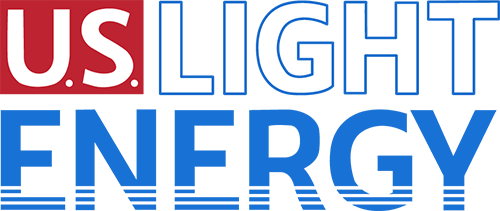Contact
Understanding Solar Land Lease Rates in Maryland
Typical lease rates for solar land leases in Maryland can vary significantly. They can fluctuate based on location, parcel size, sunlight, and proximity to power lines. It’s important for landowners to research and compare offers to ensure they receive a fair rate.
Solar developers may offer a variety of payment schedules, such as upfront lump sum payments, monthly payments, or annual payments. The lease agreement terms, such as the length of the lease, possible rate increase schedule, or payment option, can also impact the rates. Typically, lease rates increase by 1.5% to 2.5% each year for the length of the lease agreement. Landowners should carefully review these terms to negotiate the best deal possible.
How are Solar Land Lease Rates Determined in Maryland?
Several factors can impact solar land lease rates in Maryland. One key factor is the location of the land. Areas with plenty of sunlight and minimal shading are more suitable for solar energy projects. Also, being close to power lines can increase lease rates, as it simplifies connecting the solar panels to the grid.
The size and shape of the land are also crucial. Ten acres or more of relatively flat land is preferred because it can accommodate more solar panels while providing easier installation. Land that is difficult to access or has uneven terrain may require additional preparation costs, which can lower lease rates. Local zoning laws and regulations in Maryland also play a role. Areas with favorable policies for renewable energy projects may have higher rates due to fewer barriers.
Another factor is the lease duration. Longer leases provide solar developers with more stability, but landowners may request higher rates for extended agreements. While a typical lease for solar farm development is around twenty-five years, it is possible to extend well beyond that time frame. Properly maintained community solar projects can provide landowners with predictable, passive income for decades.
What are the Legal Considerations for Solar Leases in Maryland?
When contemplating a solar land lease in Maryland, it’s important to be aware of several legal factors. First, landowners should review local zoning laws and regulations. Some areas may have specific requirements for land use for solar projects, so it’s essential to ensure your property is eligible. Consulting with local government offices or a legal expert can provide clarity.
U.S. Light Energy has developed a unique feasibility process to thoroughly evaluate the solar development potential of each parcel of land. From utility infrastructure and environmental considerations to local zoning and land use considerations, we analyze multiple areas of prospective sites to drive the most value per acre.
Equally important is the lease agreement itself, which defines the terms and conditions of the arrangement, such as payment amounts, lease duration, and the responsibilities of both parties. These terms can directly influence solar land lease rates in Maryland, making it essential to review the contract thoroughly. Consulting a lawyer can help ensure your rights are protected and that you fully understand the agreement. Pay close attention to clauses related to liability and potential effects on property taxes.
It’s also important to consider the long-term implications of the lease. Solar land leases can last for many years, so think about how this decision might affect your property in the future. This includes any restrictions on land use after the lease ends and understanding the process for renewing or terminating the lease.
Common Questions on Land Leases in Maryland
What are the typical lease rates?
Lease rates can vary depending on several factors, including proximity to three-phase power lines and utility infrastructure, the amount of sunlight the land receives, available acreage, terrain conditions, local regulations, and market demand. Each of these elements can impact the amount landowners receive for leasing their property.
How long do solar land leases typically last?
Solar land leases are usually long-term agreements, reflecting the durability and longevity of solar panels. Most leases span 25 to 30 years, though some may extend beyond 40 years. With proper maintenance, solar farms can operate for decades, providing landowners with a consistent source of passive income throughout the lease term.
What responsibilities do landowners and developers have?
Landowners are primarily responsible for providing access to the land, while the solar developer handles the installation, maintenance, and operation of the solar panels. Also, developers typically manage tasks such as mowing grass, maintaining drainage systems, and clearing entryways, ensuring that landowners have zero maintenance obligations during the lease period.
Why Partner with US Light Energy for Maryland Solar?
Leasing land for solar energy is a practical way to generate passive income while supporting renewable energy development. U.S. Light Energy (USLE), a leader in community solar development, partners with landowners to help them make the most of their land through long-term solar leases. With competitive lease rates and zero maintenance responsibilities, solar leasing is a straightforward option for property owners looking to diversify their income while participating in the creation of clean, renewable energy.
If you’re considering leasing your land for solar, explore the possibilities with U.S. Light Energy. Apply for a land lease today and find out if your land qualifies for solar development! U.S. Light Energy is leading the charge for a new generation.
